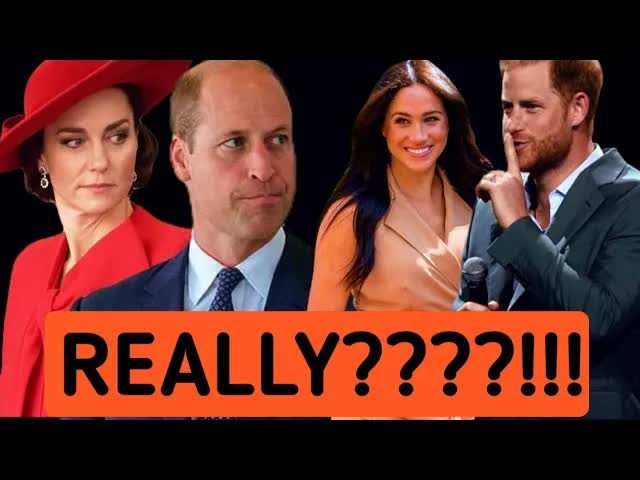In a world where headlines often overshadow substance, the UK media’s relentless focus on Prince Harry has sparked a significant debate about the ethics of journalism.
This fixation has morphed into an incessant wave of news, rumors, and speculation that raises critical questions about the role of the press in our society.
To grasp the full scope of this obsession, we need to rewind to the beginning.
Prince Harry, born as the second son to Prince Charles and Princess Diana, was always in the shadow of his elder brother, Prince William.
From the start, he was labeled the “spare” to William’s “heir.”
This designation, while limiting his claim to the throne, ironically made him a tantalizing subject for the media, who found in Harry a blend of royal lineage and a hint of rebellion.
As Harry matured, so did his reputation.
He became known for challenging tradition, contrasting sharply with his more restrained brother.
The media eagerly consumed tales of his escapades, branding him the British monarchy’s “bad boy.”
While these stories often veered into exaggeration, they undeniably fueled public intrigue surrounding the young prince.
Harry’s military service marked a turning point in his narrative.
The media, accustomed to portraying him as a wayward royal, now chronicled his transformation into a dedicated serviceman.
His decade-long commitment to the armed forces, including two tours in Afghanistan, added a new layer to his public persona.
Suddenly, he was seen as a maverick prince willing to get his hands dirty, but this newfound respect came at a cost.
Despite the shift in portrayal, the media’s unrelenting scrutiny took a toll on Harry’s mental well-being.
The press seemed oblivious to the psychological impact of their invasive coverage.
From the outset, Harry’s distinctiveness drew the media’s attention, but their pursuit of sensationalism often overshadowed the basic human right to privacy and respect that he, like anyone else, deserved.
Then Meghan Markle entered the picture—a successful actress who brought a breath of fresh air to the royal family.
Her poise and tenacity represented change, and that change ignited an even fiercer media frenzy.
Meghan was not just an American or a woman of color; she embodied a new narrative that the media couldn’t resist.
Every move she made was dissected, every word scrutinized, leading to an overwhelming spotlight that ultimately pushed the couple to step back from their royal duties.
The media’s reaction to their departure was swift and brutal.
Instead of reflecting on their role in driving Harry and Meghan away, the press doubled down on scandalous narratives, accusing the couple of betrayal.
The situation spiraled into a media circus, revealing the insatiable appetite for drama that continues unabated.
This relentless fixation is emblematic of a broader issue within the media landscape.
The press has a responsibility that transcends mere entertainment; it should serve the public interest by highlighting significant issues that affect society.
Yet, in the case of Prince Harry, the media’s focus has often strayed into personal intrusion and sensationalism.
What does responsible reporting look like?
It’s about acknowledging the impact of every story and headline.
Journalists should aim to illuminate matters of genuine importance rather than indulging in voyeuristic tendencies.
The media must remember its duty to truth and integrity, providing balanced coverage rather than feeding the public’s endless curiosity for scandal.
As consumers of news, we also bear responsibility.
We have the power to demand better from our media outlets.
By shifting our focus away from the trivialities of Harry’s life and advocating for coverage of pressing global issues—like climate change and social inequality—we can help reshape the media narrative.
Prince Harry is more than just a public figure; he is a human being entitled to his privacy.
The media must be reminded that their role is not merely to report but to uphold ethical standards in journalism.
There are countless pressing matters in the world that deserve attention, yet much of the media remains fixated on the minutiae of royal life.
It’s time for a collective shift in focus.
We can choose to engage with media that prioritizes responsible reporting and highlights the issues that truly matter.
By doing so, we not only advocate for Prince Harry’s dignity but also for the integrity of journalism as a whole.
The UK media’s obsession with Prince Harry serves as a reminder of the larger challenges facing journalism today.
As we navigate this landscape, let’s strive for a balance that respects individual privacy while addressing the issues that affect us all.
It’s high time the media redirected its gaze toward the pressing matters that truly demand our attention.
